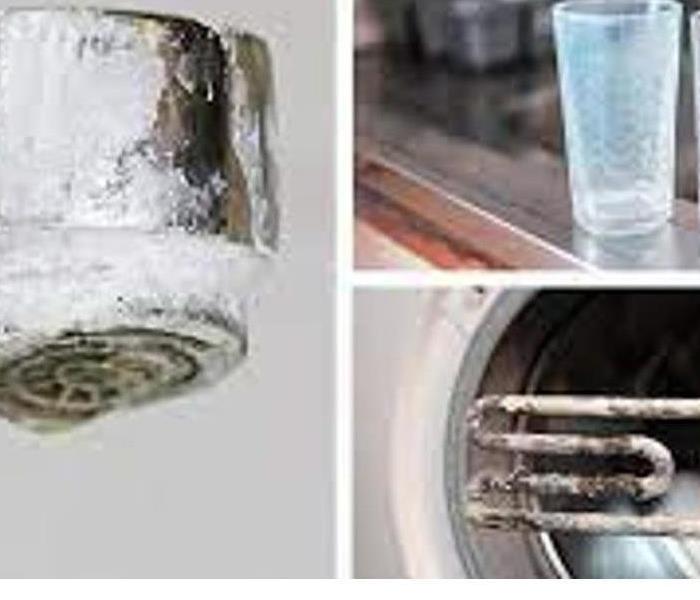Hard Water Can Cause Many Problems
9/21/2021 (Permalink)
Hidden Dangers of Hard Water
The more serious potential problems of hard water are more difficult to see.
Hard water can leave deposits of calcium carbonate and other mineral salts. In places where hard water is regularly heated or evaporates, these deposits can accumulate as a hard, flaky buildup commonly known as limescale (sometimes shortened to "scale").
If your home has hard water, limescale is likely to build up around the heating elements of a traditional storage water heater, and potentially in the heat exchanger of a tankless water heater. This can reduce the efficiency of your water heater.
Limescale can also build up inside the pipes and valves of water-using appliances. In an automatic coffee maker, this can be remedied with a little diluted white vinegar. But in appliances that are harder to clean, limescale can clog up and shorten the life of your appliances.
Hard Water in Your Pipes
That same limescale that builds up in your water heater and appliances can also accumulate inside your pipes. This can lead to a whole host of problems, including:
- Decreased water pressure as the supply flow is restricted.
- Leaks as water pressure build-up behind blockages.
- Clogged, corroded, cracked, or burst pipes.
These problems are much more common with the galvanized pipes than with copper, PVC, or PEX pipe. If your home was built after 1975, it probably has copper, PVC, or PEX pipes. These modern materials are more resistant to hard water corrosion and scaling, so you're less likely to have issues with limescale causing low water pressure, leaks, clogs, or burst pipes. You might still want to address your home's hard water to protect your major appliances and speed up your showers. But unless your water is extremely hard, it likely isn't hurting your pipes.
If your home was built prior to the mid-1970s and hasn't been completely repiped, you probably have galvanized pipes. These pipes are made of steel, galvanized (coated with a thick layer of zinc) to prevent corrosion. High-quality, well-coated galvanized pipes can last for many decades. But much lower quality galvanized pipe was used in the post-World War II housing boom. The thinner zinc coating may wear off more quickly, particularly in hard water conditions. And once the underlying steel is exposed, hard water can corrode it quickly... then build up limescale on the pitted surfaces.
It may take years for limescale buildup to cause noticeable problems, but, if you have hard water and galvanized pipe, it may have been accumulating for many years, even decades. Maybe you've already noticed a slight decrease in your water pressure. Maybe there's already a slow leak hidden behind a wall.





 24/7 Emergency Service
24/7 Emergency Service
